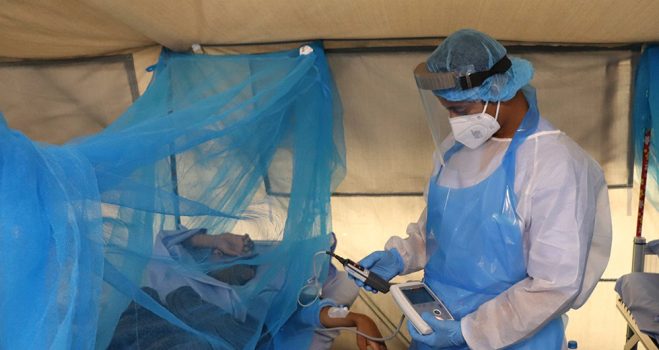Worldwide Christian and other faith leaders have joined with humanitarian groups urging global leaders to ensure equitable distribution of Covid-19 vaccines around the world, stating that they must choose between “vaccine nationalism or human solidarity.”
The joint Declaration is signed by Christian, Muslim, and Jewish leaders, as well as the United Nations High Commissioner for Refugees (UNHCR) and the International Committee of the Red Cross and the International Federation of Red Cross and Red Crescent societies (IFRC). The faith leaders include senior representatives from all the major Christian denominations, including the World Communion of Reformed Churches, the Grand Imam of Al-Azhar, and Azza Karam and Rabbi David Rosen of Religions for Peace.
The Declaration, which calls for decisive leadership from countries and organizations across the world, states: “There is a choice. The world of the next 10 years can be one of greater justice, abundance and dignity. Or it can be one of conflict, insecurity and poverty. We are at a turning point.”
The catastrophic impacts of the pandemic, combined with existing issues of conflict, disaster, and famine, mean that the world is facing the challenge of reversing “devastating dynamics,” the leaders say.
“People not only need vaccinations—they need access to healthcare workers who are skilled and equipped to deliver adequate medical support. We need to build a world where each community, regardless of where they live, or who they are, has urgent access to vaccinations: not just for COVID-19, but also for the many other diseases that continue to harm and kill. As the pandemic has shown us, in our interdependent world no one is safe until everyone is safe.”
The Declaration calls on world leaders to:
- Ensure equitable vaccine access both within and between countries by providing vaccines and funding as well as sharing knowledge and expertise.
- Leave no one behind, including stigmatised and marginalised communities for whom access to healthcare is already a challenge.
- Focus on the broader health picture for vulnerable populations – so that people aren’t protected from Covid only to die from Polio.
Image: A COVID-19 treatment centre in Aden; courtesy of ICRC.


